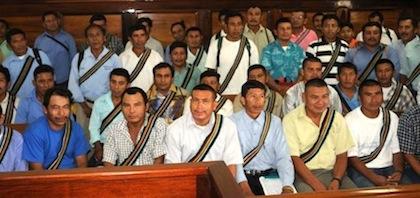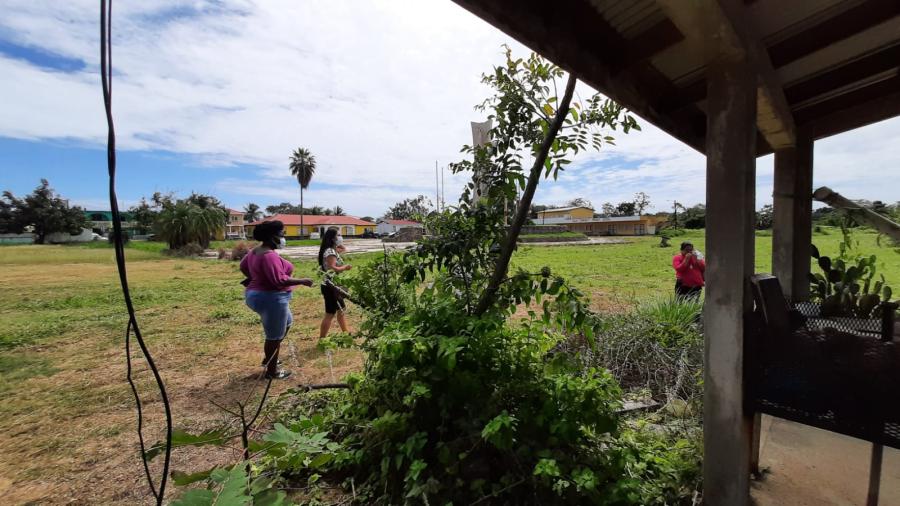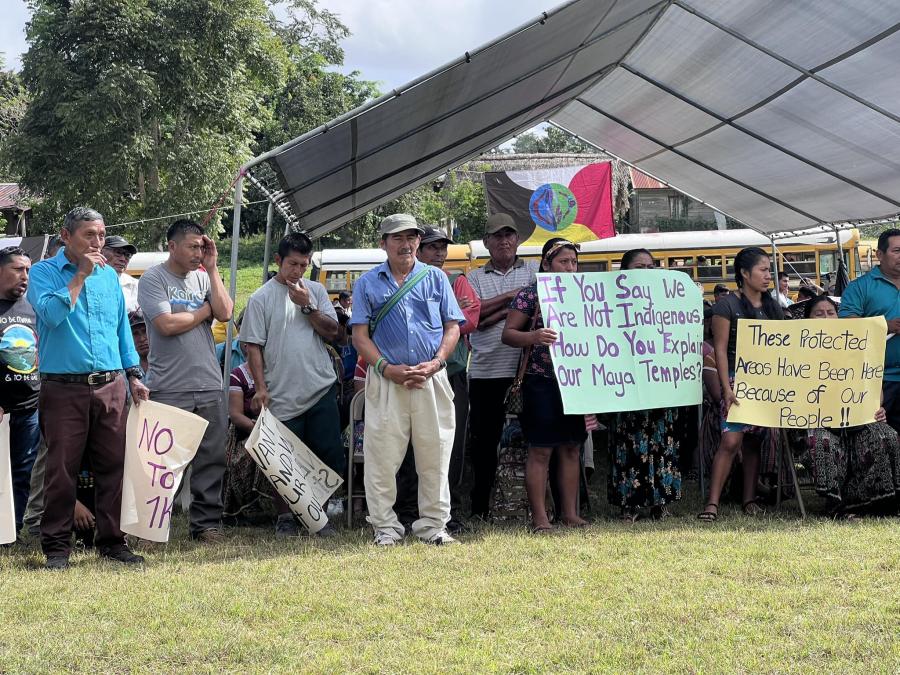
Punta Gorda Town, Toledo, Belize
In its 25 July 2013 decision in the second Maya Land Rights case, the Court of Appeal upheld the Supreme Court ruling that the Maya people of southern Belize own our land through our customary land tenure system, and that this property is protected by the Constitution. The appeal court disagreed with the remedies provided by former Chief Justice Conteh, but agreed with him on the main issue: Maya villages have customary title to our lands. This title is exclusive and equal to any other form of title in Belize.
The government of Belize has done nothing to acknowledge the appeal court’s ruling. Instead, it has focused narrowly on the court’s decision not to provide the temporary higher level of protection to Maya rights that Justice Conteh had seen fit to order. In doing so, the government has conveniently disregarded the central verdict. It has also chosen to ignore the invitation of Maya leaders to resume negotiations about how best to implement Maya land rights that have now been upheld three times by the courts and by human rights bodies of the Organization of American States’ and the United Nations.
The situation has recently become alarming as Crique Sarco village leaders who, along with SATIIM, attempted to visit a U.S. Capital site and were met by armed forces and told that they were trespassing. The government makes much of the fact that the Court of Appeal rejected the injunction against issuing petroleum concessions over Maya lands, but it completely ignores the requirements of the Petroleum Act that prohibit a company from entering onto concession lands without the written consent of the owner. U.S. Capital is preparing a drilling site on lands owned by Crique Sarco(,) without the required consent. Yet, the government insists it is the Maya who are the trespassers!
The Prime Minster has said publicly that the area within the National Park is not Maya land, even though the court in the 2007 land rights case admitted into evidence and acknowledged that Conejo village includes land in the park. The government is well aware of this and intentionally excluded Conejo’s land from U.S. Capital’s permit to operate in the park. Now the government alleges that “there can be no kind of ownership other than state ownership” in a national park. In fact, the National Parks Systems Act does not disturb existing ownership of lands within a national park, nor does it give ownership of a park to the state.
Last week, the United Nations’ Special Rapporteur on the right to food, Olivier De Schutter, released a letter to the government of Belize expressing concern about the oil exploration activities by US Capital Energy Belize Ltd. on Maya customary lands and the distribution of Maya customary land to private individuals. He stated that:
“oil exploration activities on Maya land and the distribution of Maya traditional lands to private individuals have allegedly continued without prior, free and informed consent of the local Maya population and will affect the ability of the indigenous communities to feed themselves, as they rely on their customary lands for their livelihood”.
He expressed concern that cutting and clearing for the seismic testing has polluted waterways and damaged the land used for farming of subsistence crops that form the basis of the Maya economy and diet, and that future exploratory drilling activities will lead to the development of new roads, drill sites and waste management sites, which will further affect the habitats of game animals and destroy areas used by us for subsistence and cash crop farming.
The Special Rapporteur specifically cited section 26 of the Petroleum Act that requires oil companies to obtain the consent of landowners and lawful occupiers before the entering of their lands, and highlighted that if it is failing to protect Maya customary land rights, food and water sources, the government of Belize is violating its international obligations. As with anything concerning Maya land rights, the government ignored the United Nations’ Special Rapporteur.
The Maya people have taken our land claims through the peaceful process of the legal system, and at every stage the courts have upheld our rights to our lands. The rule of law is fundamental to all Belizeans, and settling the land tenure issues in Toledo is vital to investment and the economy in the region. Yet the government’s insistence on ignoring our rights demonstrates how important the injunction and other relief ordered by Justice Conteh were. For this reason, our communities have decided to appeal to the Caribbean Court of Justice those portions of the Court of Appeal judgment that removed lawfully ordered protection of our rights.
Even as we appeal, we would prefer to resolve these issues through dialogue with our government on the premise that our land rights exist. We remain committed to dialogue based on good faith. As a people we will fulfill our obligation to protect our rights and our lands. We ask that the international community, human rights organizations and United Nations bodies to continue monitoring the relationship between the Maya people and the government of Belize very closely.
Source: September 5th, 2013. Cristina Coc – Maya Leaders Alliance - (501) 637-5611


